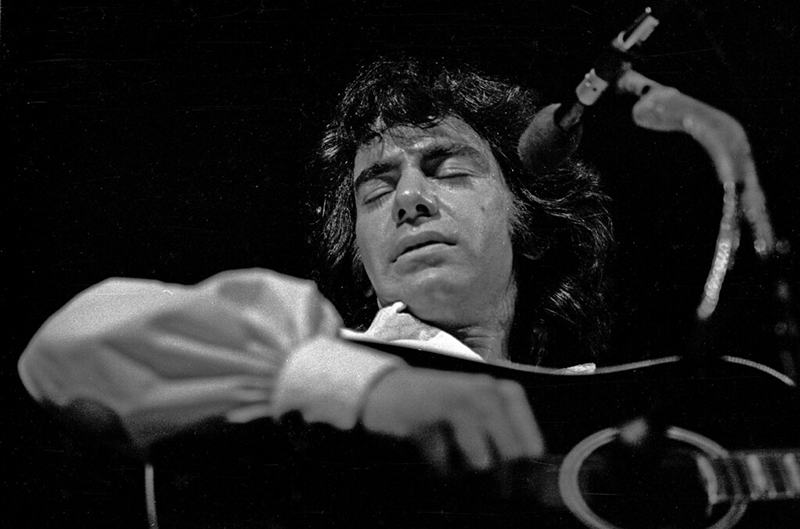
It seems like almost every day you read about yet another musician who has sold his or her recordings or music catalogue for millions of dollars. What you don’t read about, however, is the tremendous capital gains taxes these celebrities must pay when they make such high-dollar sales.
That’s the “dirty little secret” inherent in selling any highly appreciated asset, be it a musician’s catalogue or your own business, real estate investment, stock market holdings, or even your personal residence, Without utilizing the Deferred Sales Trust (DST) prior to the sale, taxes could eat up a substantial portion of your sale proceeds.
Following are three examples of celebrities who would have greatly benefitted from the tax deferral and other advantages of the DST. Please note that these celebrities are represented here in example only; we do not possess private financial records for any of these individuals and are not stating that they did or did not have a DST or other tool in place.
1. Bruce Springsteen
When Bruce Springsteen, the wildly popular rocker whose hits include “Born in The U.S.A.,” “Thunder Road” and “Badlands,” sold 300 of his songs, plus 20 of his studio albums and 23 of his live albums to Sony for $500 million, he faced the following:
- Federal capital gains – 20%
- New Jersey capital gains – 10.75% (Springsteen lives in Colts Neck, NJ)
- Medicare tax rate – 3.8%
Adding these up, that’s 33.75% of his sale proceeds. This translates into $168,750,000 or his $500 million sale price, leaving him “only” $331,250,000 to reinvest or do with as he pleased. True, that’s an extraordinary amount of money, but why pay taxes if you don’t have to?
Had Springsteen utilized the DST prior to his sale, he would have paid no upfront taxes whatsoever, leaving the entire $500 million available to him to do with as he wished. How so?
He would have first met with the Estate Planning Team, the only entity authorized to offer and implement the DST, the proprietary form of installment sale contract legalized by Section 453 of the Internal Revenue Code. Once this circle of professionals established Springsteen’s investment risk tolerances and desired income flow, the tax attorney would have drawn up the paperwork for his customized and personalized DST.
Springsteen would have then sold his $500 million worth of songs and albums to his DST in exchange for a secured installment sale contract. The Independent Certified DST Trustee would have thereafter made the final sale to Sony and taken the sale proceeds into the trust. Since the DST, not Springsteen personally, owned the assets at the time of their ultimate sale, he would have had no immediate capital gains liability. Instead, depending on the precise wording of his DST, he would have deferred these capital gains taxes almost indefinitely.
2. Neil Diamond
Who doesn’t remember such Neil Diamond megahits as “Sweet Caroline,” “I Am…I Said,” and “Cracklin’ Rosie”? But did you know that Diamond recently sold his entire song catalog, plus all of his master recordings, to Universal for $300 million? Unfortunately for him, however, this sale put him in the position of having to pay the following taxes:
- Federal capital gains tax – 20%
- New York capital gains tax – 8.82% (Diamond lives in Brooklyn, NY)
- Medicare tax – 3.8%
These combined 32.62% worth of tax payments ate up $97,860,000, leaving him slightly less than one-third of his sale proceeds, $202,140,000 to be exact, for his personal use. Again, not an insubstantial amount, but had he utilized the DST tax strategy prior to his sale, he could have kept the entire $300 million.
3. Stevie Nicks
Female artists, too, have paid a high price when selling their songs. Take the case of Stevie Nicks, the singer, songwriter and producer best known for her work with Fleetwood Mac. Their “Rumours” album, released in 1977, not only won a Grammy, but went 20-times-platinum and contained such memorable hits as “Dreams,” “Go Your Own Way,” and “Don’t Stop Thinking About Tomorrow,” former President Bill Clinton’s favorite song.
When Nicks sold a majority stake in her songs to Primary Wave for $100 million, however, surely her fondest dreams were not fulfilled. Why? Because she had to pay the following taxes:
- Federal capital gains tax – 20%
- Arizona capital gains tax – 4.54% (Nicks lives in Phoenix, AZ)
- Medicare tax – 3.8%
These 28.34% of combined taxes translated to $28,340,000 being immediately deducted from Nicks’s sale, leaving her with a $71,660,000 tarnished dream.
Bottom Line
So let’s add up the total amount of unnecessary taxes these three celebrities paid when they sold their highly appreciated assets:
- Bruce Springsteen – $168,750,000
- Neil Diamond – $97,860,000
- Stevie Nicks – $28,340,000
- Grand Total – $294,950,000
That’s more than a quarter billion dollars in taxes from only three sales!
While you likely don’t own assets worth hundreds of millions of dollars like these celebrities did, the DST nevertheless makes the perfect exit strategy when you want to sell one of your own highly appreciated assets. Request a free Reef Point DST Analysis today to find out how much the DST can save you in taxes.
